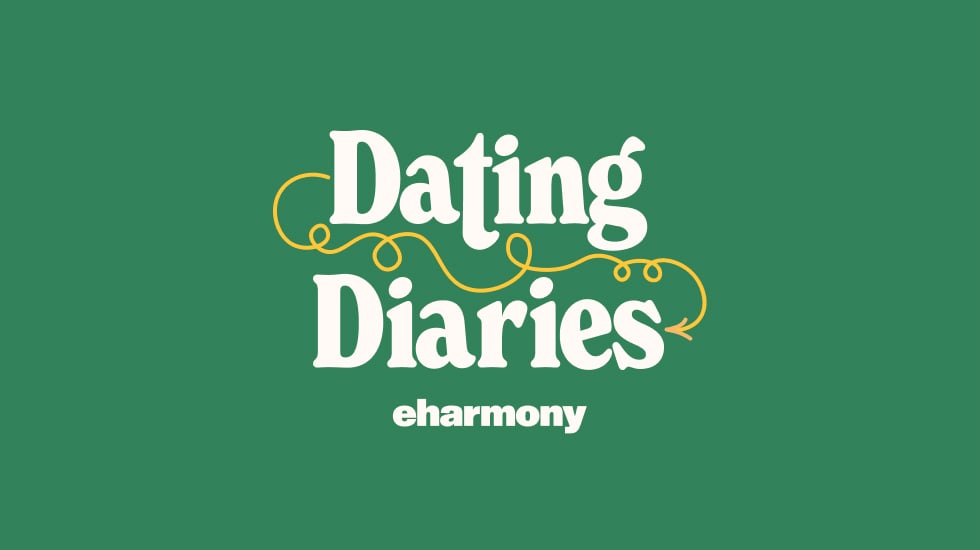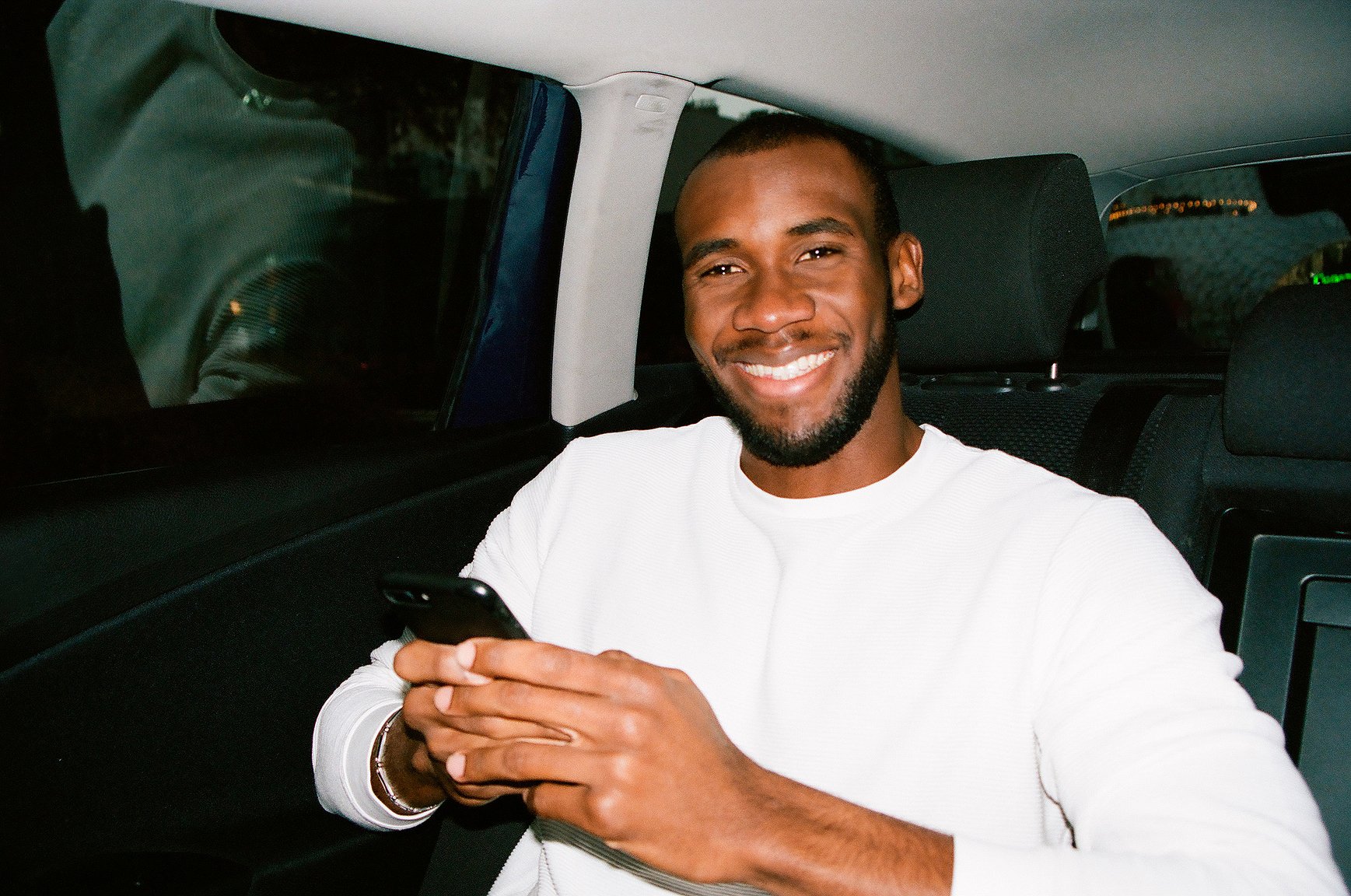
Dating Diaries, Unfiltered: The Intersection of Honesty and Dating
Want the honest truth? eharmony’s Dating Diaries report is back! We’re exploring how honesty, confidence, and authenticity impact our love lives IRL and on dating apps.
What are daters’ biggest insecurities? Who is lying on their dating app profiles and what’s driving that inclination? Does your date or partner really care about these self-perceived flaws? Good news for singles—our report found that your genuine laugh might be the perfect antidote to dating jitters. While one of Gen Z singles’ biggest insecurities is that they won’t be attracted to each other (38%), 60% of singles pay the most attention to a shared sense of humor on a first date.
From exploring (and debunking) dating insecurities to exposing the little white lies we tell on dating apps, this edition of Dating Diaries is putting it all out there in the spirit of honesty with brand-new data and advice from relationship experts.
Table of Contents
Embracing Honest and Authentic Dating
Dating apps are the go-to source for finding love, with 71% of Millennials and 58% of Gen Z having used a dating app at some point. However, people are complaining to friends, family, and even on social media that not everyone is showing up authentically. And they honestly might be right. 28% of singles are afraid of getting rejected and list this as their biggest emotional insecurity. This fear of rejection can then show up on their dating app profiles with 37% of all singles reporting not being authentic or only somewhat authentic on dating apps, and 76% of Gen Z singles believing that others are only somewhat authentic or not authentic at all on dating apps. However, people are craving honesty. Our report suggests that honesty is the key to finding an authentic relationship on a dating app.

Be all in, unattached.
This creates an initial moment-by-moment presence in the dating process where there are no expectations for the future. You are simply enjoying the moment of connection while allowing yourself to have fun, be real and present, and explore through conversation.Laurel Houseeharmony Relationship Expert
Singles’ Big (Dating App) Little Lies
If people see some untruths on profiles, singles find lying about interests (42%), height (37%), and education level (35%) to be the most acceptable on dating apps. Even more shocking, 28% of singles are okay with not being upfront about having kids.
The most acceptable and unacceptable lies between the generations are:
ACCEPTABLE
UNACCEPTABLE
Casey Tanner, an eharmony Relationship ExpertWe can actually take care of ourselves by presenting more authentically right from the start, and choosing someone on the app who aligns with our values.
When it comes to not being honest on dating apps, men and women tend to view things differently. For example, 21% of men have lied about their education, while just 5% of women have lied about their education level on their profiles. 30% of men have lied about hobbies and interests, and 30% of women have edited pictures on their profiles.

Here are the sides of the aisle men and women fall on when it comes to lies
n = 1,929 US participants
Being real also varies within the different generations. While Millennials are more likely than any other generation to lie about their job to seem more successful (25%), Gen Z is most likely to have lied about their family life (23%) on their dating app profiles. 32% of Gen Z suspect people are lying about what they’re looking for in a relationship, and 41% of Millennials suspect people lie about editing photos.
IN YOUR OWN WORDS…
Here is advice from singles on how to be more authentic on dating apps:
“Be patient.”
“Be willing to risk rejection and take healthy risks.”
“No need to curate the best photos. Show some more interesting photos or even some funny and possibly even embarrassing ones to be endearing.”
*Responses are from The Dating Diaries report, which included verbatim responses from a sample of 1,929 US participants.
What generations lie about can help reveal their worries.
- 23% of Gen Z lie to appear more physically attractive on their profiles, while they report paying the most attention to physical characteristics like skin (16%) and height (17%) when compared to Millennials on a first date (8% and 12%).
- 16% of Millennials lie to appear more confident and are also the generation that pays the most attention to extraversion (13%) on a first date when compared to Gen Z (10%).

Overcoming Dating Insecurities
Dating brings up all sorts of emotions, from exhilarating highs and pre-date butterflies to insecurities and fears of rejection. Millennials and Gen Z agree on their biggest insecurity while dating: their mental health (32% for Millennials) and (27% for Gen Z). But there is hope: these insecurities can melt away after the first date with 44% of all singles saying they will go on a second date if they feel comfortable around the person.
IN YOUR OWN WORDS…
Here are three elements of finding an authentic relationship on a dating app according to singles:
“Honesty, trust, humor.”
“Communication, genuinely interested, open.”
“Not as many filters, speaking from the heart, knowing who they really want to be.”
*Responses are from The Dating Diaries report, which included verbatim responses from a sample of 1,929 US participants..
Conquering first date fears. With the building anticipation of a first date, singles tend to overthink what could go wrong. 48% of women are most concerned they won’t have anything in common with the other person, while 37% of men fear they’ll be perceived as boring. However, it’s reassuring to discover that the other person is likely not paying attention to your self-perceived flaws. There’s one thing we all agree on: 60% of singles pay the most attention to a shared sense of humor on a first date.
Casey Tanner, an eharmony Relationship ExpertWhen creating a dating profile, our instinct might be to appeal to as many people as possible. My advice, however, would be to own your niche. It’s a successful marketing tool for a reason, and it can lead to a more authentic, fruitful love life.
Confidence… In The Bedroom
After all the highs and lows of dating, comes a healthy, strong, and confident relationship. People in relationships are reaching new heights when it comes to the confidence they feel in their partners. For example, Gen Z and Millennials in relationships are having more sex, with 20% of Gen Z having sex daily, more than any other generation. Plus, 36% of Gen Z and 37% of Millennials are having more sex than a year ago. And overall, people in relationships report having sex three or more times per week, increasing from 31% in 2023 to 35% in 2024.
What’s causing this sex spike from last year?
Gen Z is having more sex because:
- They feel more confident (57%)
- They are prioritizing sex (38%)
- They are less stressed (35%)
Millennials are having more sex because:
- They feel more confident (63%)
- They prioritize sex (43%)
- Their libido increased (41%)
Here are other bold sex trends for 2024:
- Therapy 🤝Sex: 17% of Gen Z reports that they had more sex in the past year because they started therapy
- Sex ≥ quality time: Millennials report that their relationships are more focused on sex than any other generation (14%)
- Exploration is fun: 61% of Gen Z enjoy being sexually adventurous with a partner
Methodology
The Dating Diaries, Unfiltered report was commissioned by eharmony and conducted by Harris Interactive. It was fielded online between January 9th and January 16th, 2024 and surveyed 1,929 US participants. Participants qualified if they were aged 18+ and were either married, cohabiting, in a relationship, or were currently dating. Results were weighted to be nationally representative by age, gender, and region.


